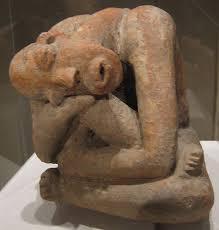‘Total chaos’ at Heathrow Terminal 5 as staff forced to self-isolate














‘Total chaos’ at Heathrow Terminal 5 as staff forced to self-isolate
There were scenes of “total chaos” this morning at Heathrow airport check-in due to huge numbers of staff being forced to self-isolate.
Passangers complained of long queues at check-in at Heathrow Terminal 5, one of the two operating terminals at the London airport, due to a shortage of staff.
Social media was flooded with images of the disruption, all showing snaking queues for check-in desks and security.
One passenger said he estimated there were “more than a thousand” people trying to get through security at one point.
Passenger Kathryn Wylie tweeted that it was “total chaos”, while Barry Manners called it a “shambles”.
A Heathrow spokesperson confirmed to The Independent that the “congestion” in the departures area was due to staff members being told to self-isolate by NHS Test and Trace.
They added: “We have activated additional team members to assist passengers with their journeys and the operation has now returned to normal. We apologise to our passengers for any inconvenience caused.”
It comes as train operators are warning that dozens of trains across Britain have been cancelled today due to staff shortages.
The cause appears to be the so-called “pingdemic”, with essential staff being told to self-isolate because they have been in contact with a coronavirus case.
GWR said: “A shortage of train crew means that an amended Great Western Railway service will be in operation today, Monday 12 July, due to a significant number of staff having to self-isolate following notification from Test and Trace.”
London Victoria is seeing cancellations on links to the Sussex coast and some shorter-distance services.
This morning The Independent reported that passengers returning to the UK could face queues of three to four hours when amber list restrictions are lifted for vaccinated travellers next week.
Foreign travel is expected to receive a sudden boost when the rules are relaxed – but the influx of returning passengers could cause major delays at UK airports, border force is warning, as it is “not set up to cope with that sort of demand”.
Reference: Independent: Cathy Adams
Investigation after ‘at least 100’ suffer vomiting and diarrhoea linked to Whitstable oysters













Investigation after ‘at least 100’ suffer vomiting and diarrhoea linked to Whitstable oysters
An investigation has been launched after “a number” of diners eating oysters from Whitstable on the north Kent coast fell ill with vomiting and diarrhoea.
Health officials did not say how many people were affected but Kent Online reported that it was at least 100.
Canterbury City Council, the Food Standards Agency (FSA) and Public Health England (PHE) are jointly investigating batches of molluscs from the Whistable Oyster Company.
The batches of oysters causing the illness have “been identified” and testing is ongoing, a spokesperson for Canterbury City Council said.
“The oyster harvesting business linked to the outbreak ceased harvesting, no further oysters have been distributed since illnesses have occurred, and oysters distributed before they were aware of the illnesses have been withdrawn from the market,” the spokesman said.
“There is no known further risk to consumers.”
The Whistable Oyster Company toldKentOnline: “We have stopped harvesting oysters as there have been some cases of sickness related to our oysters over the past week.
“We have had the allegedly affected batches checked and they are completely clear of norovirus and also within the acceptable range set by CEFAS for e-coli.
“We are currently waiting to be informed when we can resume harvesting, which will be hopefully soon.
“Our safety and testing systems are second to none and we look forward to restarting the supply of our world-famous oysters.”
Global distribution of the company’s oysters was also suspended.
Advice from Canterbury City Council, the FSA and PHE promotes “good hand hygiene,” and maintaining “food preparation practices.”
Anyone who has vomiting or diarrhoea symptoms and is concerned about their health should phone NHS 111 or their GP for advice.
China's BGI Group using prenatal test developed with Chinese military to harvest gene data












China's BGI Group using prenatal test developed with Chinese military to harvest gene data
A prenatal test taken by millions of pregnant women globally — including in Australia — was developed by Chinese company BGI Group in collaboration with China's military and is being used by the firm to collect genetic data, a Reuters investigation has discovered.
The report is the first to reveal that the company collaborated with China's People's Liberation Army (PLA) to develop and improve the test, taken in early pregnancy, as well as the scope of BGI's storage and analysis of the data.
The United States sees BGI's efforts to collect and analyse human gene data as a national security threat.
BGI, China's biggest genomics firm, began marketing the test abroad in 2013.
Branded NIFTY, it is among the world's top selling non-invasive prenatal tests (NIPT).
These screen a sample of blood from a pregnant woman to detect abnormalities such as Down's syndrome in a developing foetus.
So far more than 8 million women globally have taken BGI's prenatal tests, BGI has said.
NIFTY is sold in at least 52 countries, including Australia, Britain, Europe, Canada, Thailand and India, but not the US.
BGI uses leftover blood samples sent to its laboratory in Hong Kong and genetic data from the tests for population research, the company confirmed to Reuters.
Reuters found the genetic data of more than 500 women who took the test, including women in Europe and Asia, is also stored in the government-funded China National GeneBank in Shenzhen, which BGI runs.
Reuters found no evidence BGI violated privacy agreements nor regulations; the company said it obtains signed consent and destroys overseas samples and data after five years.
"At no stage throughout the testing or research process does BGI have access to any identifiable personal data," the company said.
However, the test's privacy policy says data collected can be shared when it is "directly relevant to national security or national defence security" in China.
BGI said it "has never been asked to provide — nor provided — data from its NIFTY tests to Chinese authorities for national security or national defence purposes".
The US National Counterintelligence and Security Center, which has previously warned about Chinese firms collecting health data, said in response to Reuters' findings that women taking the NIFTY test abroad should be concerned by a privacy policy that allows data to be shared with Chinese security agencies.
"Non-invasive prenatal testing kits marketed by Chinese biotech firms serve an important medical function, but they can also provide another mechanism for the People's Republic of China and Chinese biotech companies to collect genetic and genomic data from around the globe," the centre said.
China's foreign ministry said Reuters' findings reflected "groundless accusations and smears" of US agencies.
Other companies selling such prenatal tests also re-use data for research.
But none operate on the scale of BGI, scientists and ethicists said, or have BGI's links to a government or its track record with a national military.
BGI began working with Chinese military hospitals to study the genomes of foetuses in 2010 and has published more than a dozen joint studies with PLA researchers to trial and improve its prenatal tests, the Reuters review of more than 100 public documents showed.
The PLA General Hospital in Beijing and Third Military Medical University in Chongqing ran clinical trials on the NIFTY test in 2011.
They worked with BGI researchers to expand the genetic abnormalities the test screens for, papers published in 2019 and 2020 show.
In one example, the PLA General Hospital worked with BGI on the first Chinese prenatal trial to screen for dwarfism, which BGI later brought to market.
Also, a BGI study published in 2018 used a military supercomputer to re-analyse NIFTY data and map the prevalence of viruses in Chinese women, look for indicators of mental illness in them, and single out Tibetan and Uyghur minorities to find links between their genes and their characteristics.
As well as genetic information about the foetus and mother, the testing process captures personal information, such as the customer's country, weight, height, and medical history, according to BGI computer code reviewed by Reuters. The customer's name is not collected.
Reuters spoke to a woman who took the test in 2020, a 32-year-old office administrator in Poland.
Emilia, who asked to be identified only by her first name, said that if she had known her data could be shared with the Chinese government, or understood the extent of BGI's secondary research, she would have chosen a different test.
"I want to know what is happening with such sensitive data about me, such as my genome and that of my child," she said.
Reference: MSM News: Reuters:
Mosquito bite warning as West Nile virus outbreak hits four states











Mosquito bite warning as West Nile virus outbreak hits four states
West Nile virus has been detected in mosquitoes in at least six US states, and the insects have passed the virus along to humans in at least four.
Mosquitoes in Arizona, Arkansas, Illinois, Iowa, Massachusetts and New York have been found carrying the virus, which can potentially paralyze infected individuals.
People in Arizona, Arkansas, Illinois, Oklahoma and Iowa have contracted the disease, according to the Centres for Disease Control and Prevention.
ABC7 in Denver also reported that West Nile has been found in Colorado.
The state's health department said mosquitoes are appearing in higher numbers this year due to the hotter weather increased rain.
Two groups of infected mosquitoes were found in New York in Rockland County. The mosquitoes were trapped in Orangetown and Clarkstown over the week of 21 June, according to The Hill. There have been no human cases reported in New York.
"Most mosquitoes do not test positive for disease-causing viruses. However, a bite from a West Nile virus-infected mosquito can cause serious illness, and in some cases, death," a statement from Rockland County said.
Earlier this month, the Department of Public Health in Massachusetts confirmed that it caught a mosquito that had been carrying the virus. No one in that state has contracted the virus, according to Best Life.
Margaret Cooke, the Acting Commissioner of the DPH, said that the confirmation of the virus in mosquitoes means people should take steps to avoid bites where possible.
The virus is particularly dangerous for people 50 and older. The virus can lead to "neurological diseases" but also has more mild symptoms that resemble the flu, including fever, head and body aches, nausea and sometimes a skin rash.
A 23-year-old woman in Oklahoma, has been hospitalised for two weeks after being infected with West Nile.
The woman went to the emergency room after suffering chest pains. She was released, but then began experiencing severe leg spasms and later had to return to the hospital.
Her father said days before she was hospitalised that she was bit by a mosquito. She was diagnosed with West Nile as well as an autoimmune disorder and a spinal stroke.
The Oklahoma State Department of Health warned residents that this was the prime time for mosquitoes and advised people to take precautions to avoid bites.
Articles - Most Read
- Home
- LIVER DIS-EASE AND GALL BLADDER DIS-EASE
- Contacts
- African Wholistics - Medicines, Machines and Ignorance
- African Wholistics -The Overlooked Revolution
- African Holistics - Seduced by Ignorance and Research
- The Children of the Sun-3
- Kidney Stones-African Holistic Health
- The Serpent and the RainBow-The Jaguar - 2
- PART ONE: DIS-EASE TREATMENT AND HEALTH-3
- 'Tortured' and shackled pupils freed from Nigerian Islamic school
- King Leopold's Ghost - Introduction
- PART ONE: DIS-EASE TREATMENT AND HEALTH-4
- PART ONE: DIS-EASE TREATMENT AND HEALTH-2
- PART ONE: DIS-EASE TREATMENT AND HEALTH-5
- African Wholistics - Medicine
- Menopause
- The Black Pharaohs Nubian Pharaohs of Ancient Egypt
- The Mystery System
- PART ONE: DIS-EASE TREATMENT AND HEALTH-6
Who's On Line?
We have 108 guests and no members online
Ad Agency Remote
Articles - Latest
- The Male G Spot Is Real—and It's the Secret to an Unbelievable Orgasm
- Herbs for Parasitic Infections
- Vaginal Care - From Pubes to Lubes: 8 Ways to Keep Your Vagina Happy
- 5 Negative Side Effects Of Anal Sex
- Your Herbs and Spices Might Contain Arsenic, Cadmium, and Lead
- Struggling COVID-19 Vaccines From AstraZeneca, BioNTech/Pfizer, Moderna Cut Incidence Of Arterial Thromboses That Cause Heart Attacks, Strokes, British Study Shows
- Cartilage comfort - Natural Solutions
- Stop Overthinking Now: 18 Ways to Control Your Mind Again
- Groundbreaking method profiles gene activity in the living brain
- Top 5 health benefits of quinoa
- Chromolaena odorata - Jackanna Bush
- Quickly Drain You Lymph System Using Theses Simple Techniques to Boost Immunity and Remove Toxins
- Doctors from Nigeria 'facing exploitation' in UK
- Amaranth, callaloo, bayam, chauli
- 9 Impressive Benefits of Horsetail
- Collagen The Age-Defying Secret Of The Stars + Popular Products in 2025
- Sarcopenia With Aging
- How to Travel as a Senior (20 Simple Tips)
- Everything you need to know about mangosteen


